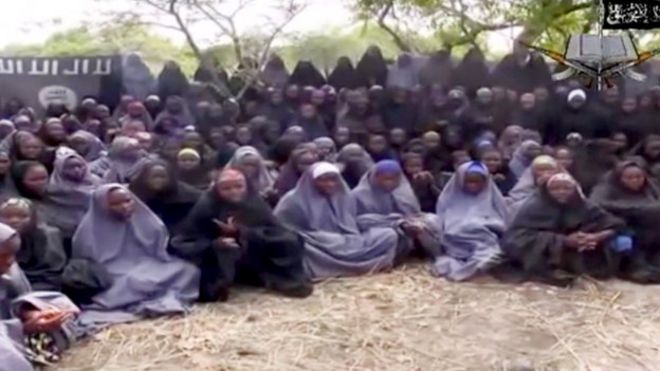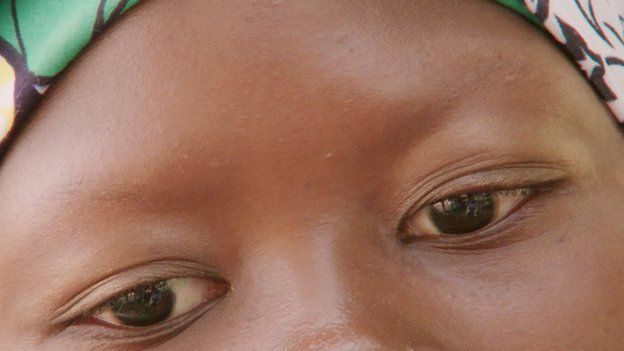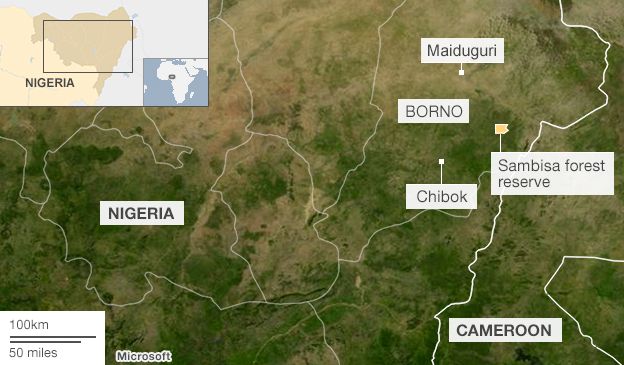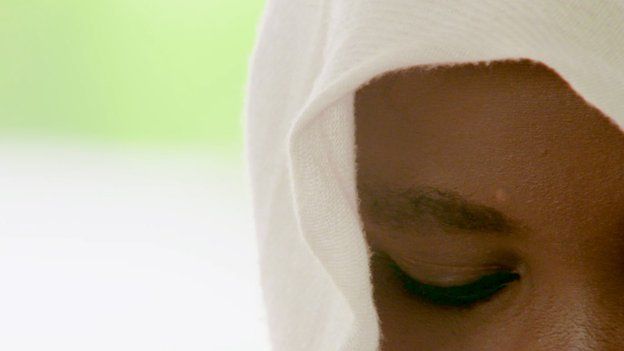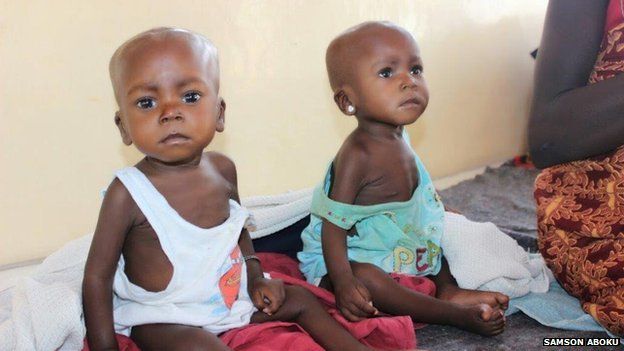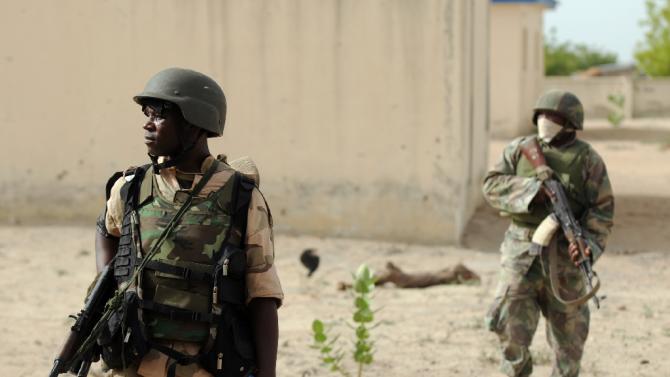By Emma Ujah, Abuja Bureau Chief, Mike eboh & Gabriel Ewepu
How would you rate the capacity of the Solid minerals sector in the nation’s economy?
To talk about the capacity of the solid minerals sector in the country, how important it is and what it can contribute to the economy, let’s take our minds back to the past. There was a time in the economic history of this country when the solid minerals sector was contributing as much as 12 per cent to the GDP (Gross Domestic Product). From the late 1950s before the discovery of oil, the solid minerals and agriculture were the main stay of the economy.
From that period up till 1973 , to be conservative, because 1972 was the turning-point between the benefits we derived from the mining and the curse that oil brought us. Up until 1972, we were having about 12 per cent contribution from solid minerals to the GDP. But the Indigenisation Degree of Gen. (Yakubu) Gowon in 1972 to transfer the solid minerals industries from foreigners to indigenous operators seemed to be our undoing, unfortunately.
Like we often say that management is the problem of the African race, it all played out in the solid minerals sector at that time. From that particular time till date, mining has been in decline. And today, we are talking generously, based on the data by the Nigerian Bureau Statistics, of 0.3 per cent to the GDP. Imagine the fall from 12 per cent to the GDP to as low as 0.3 per cent.
The questions everyone is asking are: Does it mean that skills in the sector have been deteriorating? Does it mean that in this age of science and technology, when people are acquiring better ways of exploration and mining, are we on the decline?
Or is something really wrong with us? There is advancement in the industry as technology advances, worldwide. But the major problems towards harnessing the sector and having the sector and the comatose situation in the sector is the fact that certain people are profiting from the crisis.
What you are saying is that some people are benefiting from the lack of development of the nation’s solid minerals sector?
Absolutely. The situation is such that the more the sector is declining , the more the purses of some of these set of cabals within the sector are enlarged.
If by 1972, the sector was contributing 12 per cent to the GDP, what could have been missing, averagely, on an annual basis, by abandoning the industry?
Assuming Nigerians take data seriously, assuming we build a database where we have authentic information, in 2012 the Permanent Secretary of the Ministry of Mines and Steel, came before the nation and said, that from our precious metals alone, specifically from our gold exploitation alone, Nigeria was losing $ 50 billion on annual bases.
Do you mean $50 million or $50 billion?
I said $50 billion. If you convert that amount to the Naira, as the exchange rate of that time, it would be about N8 trillion which is about the budget of the federal government for two years.
What you are saying is that, if we had pursued the development of the sector, gold alone could have given the nation as much as $50 billion annually?
Yes. That is exactly what I am saying. Only gold. We are not yet talking about our potentials in bitumen; we are not yet talking about our potentials in our traditional export. Niobite (Columbite) and Cassiterite (Tin ore).
Mind you the only two major minerals prior to 1972 that gave us a very high percentage of contribution to the GDP were only exploitation of calciterite and niobium. Those were the only two dominant minerals as at that time.
We cannot talk about what we are losing without knowing what we have left untapped. What solid minerals do we even have in Nigeria in terms of deposits in commercial quantities?
Based on the data at the Federal Ministry of Solid Minerals, we have 34 exploitable and exportable minerals across the country. Back to the issue of abandonment, we don’t need to ask why the sector was abandoned because we all know it is because of the shift of attention to oil. Where are other countries with similar endowments on the scale?
There must be interest in solid minerals because without solid minerals, there will never be industrialization. Without minerals, there will be no meaningful economic development. This must be underscored. So it is imperative for nations with solid minerals to develop them. It would interest you that some nations that don’t even have natural endowment like
United States of America you see them having strategic mineral deposits that even surpasses those nations that are endowed in terms of their solid minerals. It is so critical because without solid minerals development in any nation there is no industrilisation and there is no meaningful economic development of such nation.
That is why it is so important that the solid minerals aspect in particular in Nigeria should be developed if we are to realize our vision 20:2020.
What is the cause of a declining productivity in the solid minerals sector?
I will handle the problem in two ways. Unfortunately, they are not well educated on the potentials of solid minerals in the country. One is that the government agency saddled constitutionally with the powers to serve the sector, do not have adequate knowledge on what potentials we have in the mining industry. Two, we also have a situation that the government being so satisfied and benchmarking their annual budget only on the revenue that comes from oil and gas, do not think of diversification of this economy. And the political will is not even there to look at alternatives.
Number three is the deliberate efforts of some few privileged people within the sector to emasculate this sector and shield it from some from initiatives coming from the outside. Those who are saddled with the responsibility of manning this sector like the Ministry of Mines and Steel Development and some few persons have taken the sector captive and have shielded it from outside initiatives.
As an organisation what have you done on your own to deal with these challenges?
In 2006, when I assumed the leadership of the Mining Association in this country time till date, about 10 years ago, I consistently articulated the problem within the mining sector, looked at the in and out; and putting my years of experience and operation in the industry for 25 years, I have consistently maintained that two million jobs from 2006 to date could have been realised within the tenure of any regime of four years.
And with revenue that will compete with revenue from oil and gas can be realised from solid minerals development in the country. I have done a lot on this by my letters, memos, articles and position papers to both the National Assembly and the Ministry, and all are documented. My argument is that the sector has the potentials of diversifying our economy and I have consistently maintained this for the past 10 years.
The sector over the years has been plagued with issue of funding which has led to the abysmal performance of the sector, what do you think as a mining professional should be done to address this challenge?
I have come to a conclusion that funding is not a problem to this sector after my long assessment of the sector with my 25 years experience. Any public money you put into the sector right now will be as a vapour in the hands of these cabals.
Their antecedents are up there because all the intervening of funding that have gone into the sector like Ajaokuta, Aluminum Smelting Company at Ikot Abasi, The defunct Nigeria Mining Corporation, and all other companies the government have delved into, what have they given to us and is nearly zero.
The solid Minerals Development Fund is what I advocated when I took over the mantle of leadership in 2006. The clause 34 is where you have that Solid Minerals Development Fund in the Mining and Minerals Act What the agency under the Act set out to achieve is to give developmental funding to the sector, to enable off-takers in the sector to reduce geological funding that will generate data for the sector, and nothing more than that.
Is the objective of the Solid Mineral Development Fund achieved?
Never!
Could it be because there is not enough data?
Nothing. We got some data from them and according to them they have done airborne geophysical survey; done 100 percent, we have mapping of 1-250, 000 on the scale of geophysical mapping of the country. The question is where is the development?
What further data do you require in the industry?
We can have better geological data that will reduce the mapping to a smaller ratio, maybe 1-100, 000. This one can be done by the investors themselves. The one required generally is already there according to the information by the Nigeria Geological Survey Agency under the Ministry of Mines and Steel Development.
Trying to reduce the mapping to a smaller ratio of say, maybe 1 to 100,000 or 1 to 10,000, like it is done in most places. These ones can be done by the investors themselves. The basic one that is required generally is already there, according to the information given to us by the Nigerian Geological Survey Agency (NGSA), which is an agency under the Ministry Of Mines And Steel. If you say the problem of data is our problem, before 1972, what was the position of the data; when the sector was contributing 12 per cent to GDP? The truth is that data is not the issue.
The issue is not funding also. The government officials in the Solid Minerals industry, three years down the line, what have they done for us? If you analyse the Ministry’s annual budget, 90 per cent is going for payments of their own pockets, servicing the people that they put in there, when the people that they put in there were supposed to generate funds. They lack the capacity, because their antecedent is zero.
Is it not because they are civil servants and by nature of their jobs they are supposed to create the enabling environment rather than generating funds ?
Unfortunately, like I told you, I initiated, essentially part and parcel of that clause, clause 34 (of the Mining Act). There was no way we would have, knowing the bureaucracy of the civil service, left that thing (Mining Development Fund) in the hands of the civil servants. We requested specifically that the chairmanship of that place should be somebody with capacity, independent of the civil service. It is supposed to be an entity that can be sued and have the right to sue.
It is supposed to be an autonomous agency. So, it was not supposed to operate within the civil service bureaucracy, never. That was not the concept. But unfortunately, you see that because of the kind of stooges that have been planted to manage the agencies were of the minister and of course, everybody is subjected to the ministry and looking up to the ministry for money and other things.
The day the agency was inaugurated, I came before the media to say that this is going to be blackmail against operators in the mining sector, because it is going to be a failure. What we are seeing today has brought to question the essence of setting up the agency in the first place; it has become a blackmail.
Anything we now ask of the government, they will say that everything they have done for us has resulted in a failure. These are deliberate booby traps set up by these cabals to continue in their hegemonies.
If the Fund is given a leadership of an operator, will we see any difference?
Absolutely. Any institution, no matter how good the policy establishing it, without men and women with integrity running it, the result will be a failure. For example, prior to (late) Dora Akunyili coming to the leadership of NAFDAC, it was to many of us, not existing, even though by law and structure, it was existing. But it came into limelight and to the knowledge of everybody when a person with capacity assumed the leadership of that institution. This is similar to other institutions.
What are the expectations of the operators from this Fund?
The agency is to create fund, because mining is a long gestation operation. Before you can begin to get the dividends from mining, you must put much into exploration. One can be involved in exploration for one year and at the end of it, might not get anything that is of economic value. Again, one can also find out that at the end of exploration, certain elements in the ore body may be harmful and may not be suitable for the market, so you discard it and move on.
Those kinds of fund, which I call developmental fund is to aid the organization, so that at the end of such things, one do not have heart attack, knowing that all one’s livelihood have been pumped into the activity without yielding anything positive. It is supposed to be for that kind of cushioning effect.
How do you help government to mobilize professionals to make the sector viable?
We are using this opportunity to appeal to the conscience of the nation, the fourth realm, to sensitise the government. Like I told you, one of the major problems is that government lack good and credible information regarding the mining sector. The government should be sensitized that the country has an alternative in solid minerals that can diversify the country’s economy from oil and gas.
Once the government can have that, the government should not just listen to its agencies alone. For example, in the ministries, one should not expect anything different from the back tapping and ego massaging, because they want to speak well of themselves.
They told us in 2013 when there was the media chat by the then Minister of Mines and Steel, that 1.25 million jobs were created from the mining sector, those kind of thing, you take them up on it. Ask them to show the indices. Meanwhile, the economic manager of the country, the Minister of Finance, told us that the whole nation recorded about one million jobs on an annual basis; what a contradiction? If a ministry alone is saying it created 1.25 million jobs, then who is fooling who?
We should be able to get to that point that nothing is happening. My intention, which informed the crafting and documentation of the Project Mining Modules, is to be able to bring the entire stakeholders within the mining industry together, have a workshop, unfold what the Modules entail and classify everybody according to their profession in order to move them as foot soldiers within the industry to unleash development. That is the objective of the Modules.
A major problem in the sector is the issue of artisanal mining which we also call illegal mining. This is causing serious hazard to the country. What do you advise should be done about the issue?
On the issue of this unethical mining practice, which I term it to be; it is a situation where you are pursuing a dog up till the point where it gets to a wall, having nowhere to run to, the dog will turn back on you. That is the scenario you find with the artisanal operators. The mining operations are rural based and the people you find in the rural areas, most of the time, hunger and poverty drive them into all of these unethical and unprofessional mining operations, where they see minerals lying fallow and nobody is taking them
.
To make it worse, Nigeria now opens its borders to marauders that call themselves investors from China and India, coming in with their cash in their pockets, disguising themselves as investors, whereas they are slave drivers; come to those communities where these poverty stricken Nigerians leave and them telling them to get into the earth, do anything they like, promising to reward them with cash they have.
These poor people, seeing the cash in their hands would do anything for these slave drivers and this is what is encouraging it. By the time you stop all of these people who cannot do what they are doing in Nigeria in their own country; there will be sanity within the system.
Is there any law to stop that kind of thing?
Of course, it is imprisonment. The Minerals and Mining Act empowers the government agency, the Ministry of mines and steel, to imprison anyone found culpable. Again, by the constitution, the solid minerals mining operation is vested on the presidency and the president can by a simple fiat, a simple policy or pronouncement, get every one of these slave drivers into prison.
These actions are not done elsewhere. Even in Cameroun, if you pick diamond and the gendarmes catch you, you lose the diamond, you go to prison and you pay your way out of prison as a deterrent.
But in Nigeria here, even the people who are supposed to regulate the sector would turn the blind eye when certain transactions happen under the table. Most of the time, you will notice that these people are aided; they are even given official vehicles to move around, with our security officials as guards.
To address the impunity, ensure that both the people saddled with the responsibility to enforce the Minerals and Mining Act and the people committing this impunity, bastardising our law, are arrested and imprisoned. My proposal on these, based on the Minerals and Mining Act, is to say that the president give a certain presidential committee the powers. By the time you make scapegoats, people will learn. Buhari has done it before, that is why we want him to do it again
.
When it comes to the issue of economic saboteur, they should not be pity. It is against the law of the land. When you break the law, you should face the music.
Ajaokuta is a victim of local saboteurs and international conspiracy
Let us talk about Ajaokuta Steel. It remains a sour spot. Over $7 billion injected was said to have been invested there, yet it is not producing anything. What can we do to turn around the fortune of the institution?
We have what I will call a connivance of saboteurs, which comprises Nigerians with the international steel mining giants to perpetually make Nigeria a dumping ground for their steel products from their respective countries. So long as they have economic benefits from such evil economic sabotage, they will continue doing it and Ajaokuta will never develop. The survival, revival and revamping of Ajaokuta Steel is hinged on just one word, patriotism.
When you put Nigeria before any personal consideration and you start that today, by tomorrow, Ajaokuta will come back to life. Ajaokuta, from every indication of what you have said, that about $7 billion have been put into it. Ajaokuta is a community; it is a hub of industrialization in Nigeria. Not only Ajaokuta, we also have the rolling mills, which are one in each of the six geo-political zones across the country. The six geopolitical zones have one rolling mill each to make sure that the industrialization dream of the country is realized.
Like I keep saying about the cabals and their booby traps, so long as they are profiting from all of these impunities, Ajaokuta will never see the light of day.
All we will be seeing is ‘give us money, we will concession it.’ They will concession it and the beneficiaries, if we do technical audit today and the nation is ready to bring to book everyone that is involved in the cannibalization and asset stripping of Ajaokuta, you will see that many heads will roll, both serving and those outside of government, heads that have profited massively from the destruction and pillages of Ajaokuta.
How do you think government can pick up the pieces and make something out of it?
Like I told you, Ajaokuta will come up tomorrow, if today, someone would put the nation first and would imbibe the spirit of patriotism in the revival of Ajaokuta.
Remember that Ajaokuta has a company called the Itakpe Iron Ore Company, which was supposed to be a buffer of raw materials supply to run the complex and this is within the same area. The infrastructure is virtually complete in the place. All the rail tracks, everything, from the mines to the rolling mills to the plant, to the factory. It is an integrated plant, they are all there. All you just need to do is true patriotism.
I have recommended that all the major actors, wherever they are, within or outside the country, are invited for a meeting. All the ministers should be called to a meeting, lock up the door and table before them the resolution of the problems of Ajaokuta Steel, by the time the meeting is finished, the solution to Ajaokuta Steel will be there already.
From Obasanjo to Yar’Adua/Jonathan, there have been several attempts at privatizing the plant. Do you subscribe to the Federal Government privatizing it, appoint a managing director to run it or concession it to private investors?
Part of the problem we have is the Bureau of Public Enterprises, BPE. The BPE, as far as solid minerals is concerned in the country, they are a capital failure. Because there is virtually no single score for them in terms of performance in the privatization in the solid minerals sector.
I challenge the Director-General of the BPE to a debate before the nation, to come and tell us which of them have been privatized successfully. Many of them have litigations. Such litigations have put the privatized institutions in limbo, they have become an exhibit. The Aluminium Smelting Company of Nigeria, ALSCON, for example is an exhibit; Ajaokuta is also an exhibit.
You are the owner of something you cannot take it because it is an exhibit. They are taking you before the London court, international and local courts, before their countries’ courts, and all that. And all these are deliberate. It is to make sure that Nigeria remains a dumping ground for all their mineral products.
They are pumping into the country, because they believe Nigerians are stupid and careless people and also because they think we value imported products more than those we produce in our own country. This is our problem.
What difference can the modules you are propounding bring?
The modules are just to bring about a change, because a situation where like in Zamfara where over 400 people died, that is the one documented. I can tell you that it is happening on a daily basis, in Plateau, anywhere there are mining activities going on, people are being buried underground.
The module is to bring in professional operations; it is to harness the theory and practice of mining. The module is to make the government to only act as the regulator and the private sector as the engine of growth.
Is that not the current situation?
That is not the current situation, unfortunately. We have a situation where the ministry is going cap in hand, telling operators they want to set up buying centres in the 774 local governments in the country. You give them money and the money vanishes. You tell me anywhere that any of the government buying centres has ever seen the light of day, there is none.
In fact, most of them ended up in EFCC some years ago, because they reported to the nation that they had built buying centres and it was investigated and discovered that even the land was not their own. Yet, they reported that it has been built and the money shared among themselves. The case, I think is still lingering with the EFCC.
The module is to be able to stop all of these, bring in a sense of the joy you derive from mining. Mining is an interesting venture. When you see nature in its beauty and fancy, mining is involved. It is to be able to attract the youths and interests into mining. By the time you see organized mining, you would want to go into it.
It is also to be able to unleash the backward and upward integrations associated with mining, where you have consultants coming up, advocacy groups, NGOs on environment, on mining and database companies springing up; where you have internet operators trying to bring modules and shapes of different minerals coming up. It is a holistic approach to mining development in the country. Each of those modules is giving you a minimum standard you must meet if you want to go into any area of mining, with equipment back-up.
Can you readily tell us where we have gold in Nigeria?
We have gold in Edo state, Osun state, those are known places. We have gold in Zamfara, Kaduna traditionally, in commercial quantity. If it is not in commercial quantity, a permanent secretary would not have told us that we are losing about $5 billion from that sector on an annual basis.
Apart from gold, what other major solid minerals can you say are low hanging fruits that we can easily tap into?
Easily, our traditional ones have been the base metals; the cassiterite, which is the tin ore and the columbite. Our industrial minerals like the limestone for cement, for possibly the construction industry and also granite. These are all over the places. We also have clay for pots, cups, gift items and all of that.
Instead of importing all our porcelain from China, we can do all of these within a room with a simple machine. That is the essence of the mining modules; it gives you standards on what have been successfully practiced in other countries with solid minerals resources and it is replicated here in the country.


